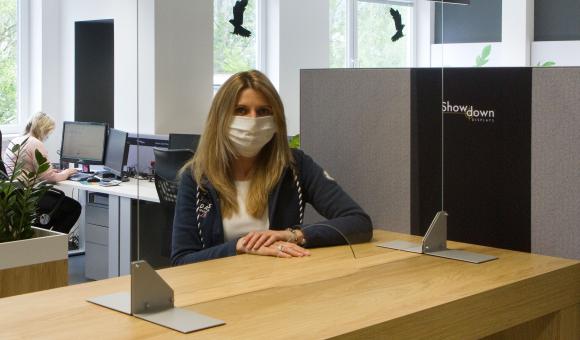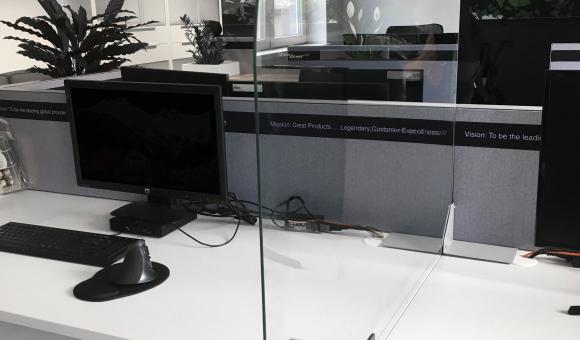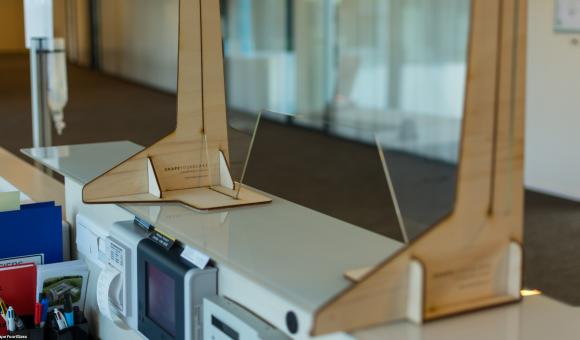
AGC Glass Europe has developed standard safety glass protection screens to be installed in shops or open spaces. Compared with existing plastic solutions, safety glass is more transparent and solid, more scratch-resistant and durable: it doesn’t fade over time or under the effects of alcohol-based detergent.
These solutions help to maintain social distancing between members of the work community (employees, customers, etc..). They will therefore contribute to reducing the risk of propagation of viruses such as Covid-19. These protection screens are available in safety laminated or tempered glass. Both versions are suitable for shops and receptions while the latter is also indicated for open spaces (in clear or matt option). Those solutions exist in standard dimensions and are supplied with fixation material
Based in Louvain-la-Neuve (Belgium), AGC Glass Europe produces, processes and markets flat glass for the construction industry (external glazing and interior decoration), car manufacture and solar power applications. It is the European branch of AGC, the world’s leading producer of flat glass. It has over 100 sites throughout Europe, from Spain to Russia, and employs around 16,500 employees.


